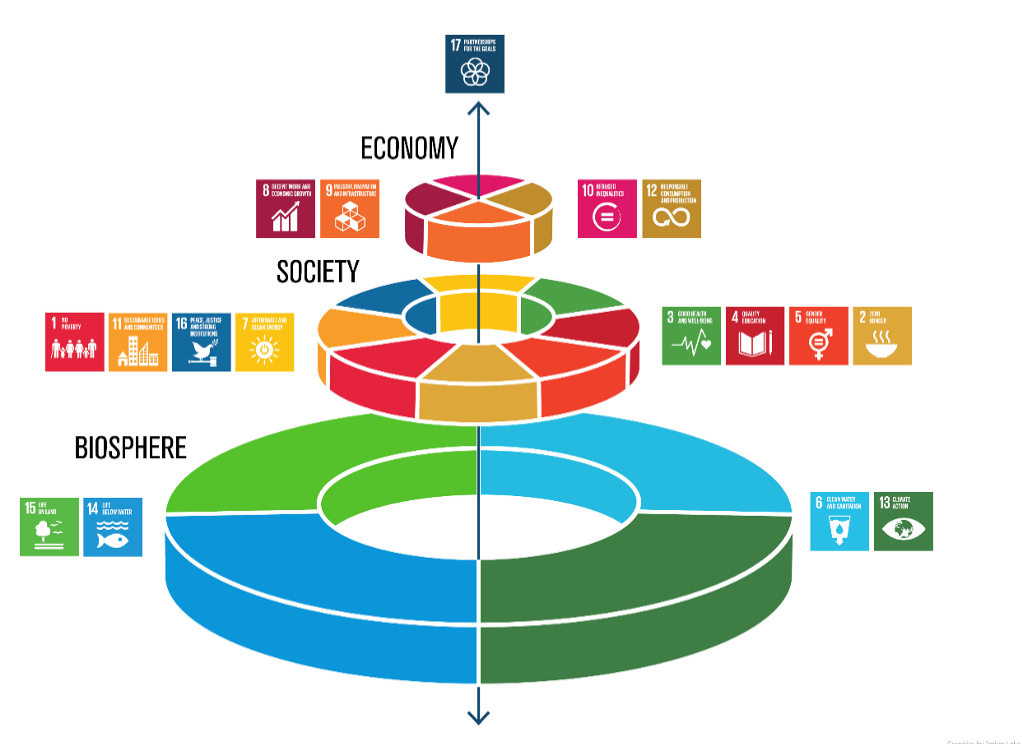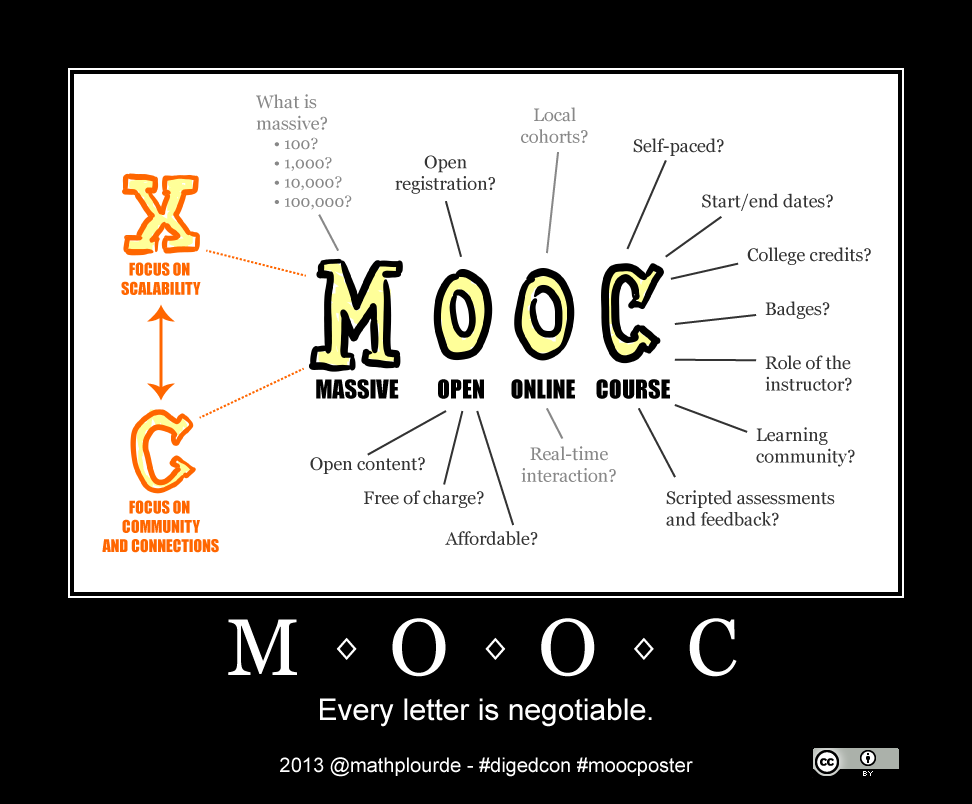Assessment Feedback and Course Design
Take5 #81 Learning Development 2030 – take two: Grades
This post is brought to you from two learning developers, Ralitsa Kantcheva (University of Bangor) and Ian Johnson (University of Portsmouth). It seeks to develop arguments about the future of LD and the questionable value of grades in higher education today. It proposes that rather than grading, attaching value to the student’s ability to contribute to their local and global communities could offer a promising alternative. A decade from now – What does the future of learning development hold? A recent Take5 blog post by the Bournemouth University Learning Development (LD) team (Bickle et al., 2023) drew together how various LD […]

#Take5 #74 Massive Online Open Courses (MOOCs): It’s massive, it’s open, it’s learning!
Bringing development opportunities to the masses This #Take5 post is brought to you from Dr Lee Fallin a regular tweeter and learning developer based at the University of Hull. Lee loves all things digital, and uses this #Take5 post to reflect on his journey from MOOC consumer to MOOC producer. I first learned about Massive Online Open Courses (MOOCs) at the 2013 ALDinHE Conference hosted at the University of Plymouth. This was *just* as MOOCs were emerging as a popular means of accessing learning online. MOOCs are designed to support unlimited participation and open access by delivering learning through online […]

#Take5 #71 Gilly Salmon: Five steps forward
This #Take5 blog post is brought to you from Gilly Salmon – and we are so delighted to be able to present her latest thoughts on the 5-stage model for online learning. If not now – when? The 5-stage model: Carpe Diem The 5-stage model for online learning was first built nearly 30 years ago from grounded and action research. (Sure, cue violins!). It was rooted in social constructivism, learner engagement and scaffolding when content was still king. Initially, I deployed it to support tutor development – the term I called ‘e-moderating’. Fast forward through three editions of the book, another on […]

#Take5 #63 Design Sprints for Developmental Learning
On your marks, get set, sprint This Blog post for Take5, (edited by Sandra Sinfield) is on Nottingham Trent University’s (NTU) design sprints – in particular on how educational developers support the disciplines’ design teams in working on emergent course (programme) design. It has been kindly written by Ellie Kennedy, NTU. NTU design sprints: making course design more developmental Design sprints at NTU take a supportive, developmental approach to course (programme) design. Whereas course design was often previously “hidden” work done by the course team outside core hours, the sprint model – developed and organised by the Centre for Academic Development […]

#Take5 #53 The best way to get your students to engage…
This #Take5 post is brought to you from Dr Carina Buckley of Solent University – and is in dialogue with her #Take5 on students and camera use in online teaching and learning from a few weeks ago. The Evil DrB herself Should your students turn their cameras on? A rebuttal A few weeks ago, I argued in this blog that students should be free to choose whether or not to turn their cameras on during live online sessions, and that there were other ways for students to participate. While I still support this approach, particularly from a student-centred, theoretical point […]

#Take5 # 37: The Best Way to Embed Learning Development?
Creating powerful learning spaces and real learning across a suite of first year Computing modules This #Take5 blogpost is brought to you by Tom Burns and Sandra Sinfield – reflecting on a project that embedded creative learning development practice in an ‘Higher Education Orientation’ module offered to students across a suite of first year Computing, Design and Animation courses. ‘MySpace’ – not In university, students, especially those from non-advantaged backgrounds, can become rendered silent and passive or alienated and disaffected by the very spaces in which we teach and expect them to learn. Students can experience ‘our’ spaces, the lecture […]
#Take5 #27 The Best Way of Blending Learning?
LESSONS FROM A TEACHER DEVELOPMENT PROJECT: One positive instance of using technology for student learning, rather than its own sake. This guest blog explores the authentic embedding of digital practices within our pedagogic toolbox and has been prepared for #Take5 by Dr Paul Breen (@CharltonMen) who also shares, below, a link to his free book: Developing Educators for the Digital Age. Image: Teachers in Paul Breen’s PhD Study using iPads in the classroom The tools for the job “SHOULD teaching take place within an academic bubble detached from the outside world, or should it make use of all that is […]

Take5 #11: What makes a great exam?
CREATING ACTIVE LEARNING IN EXAMS Inspired by October 30, 2015 iad4learnteach blog with permission from Simon Bates. In our last Take5 blog, we looked at what makes a great lecturer – this post explores what makes a great exam. Simon Bates is Senior Advisor for Teaching and Learning and Academic Director for CTLT at UBC Vancouver. He has spent time re-thinking classroom practice – AND he has also designed a new two-stage exam that includes both individual and group elements – and that he argues better models real world issues with which graduates will have to engage – and that in the […]

Take5 – Post7: It’s March – coming in like a lion: designing new assessments and classes!
What do you do when designing a new course or developing a new assessment or assignment? How do you check that you are working with your own education philosophy rather than against it? How do you prevent yourself from trotting down the same old path, not challenging either yourself or your students? How do you offer students assessment choice? As Howard Rheingold said on #ccourses (http://connectedcourses.net/) – if we aren’t falling off – then we’re not dancing on the edge! So, for this post I am mostly re-posting a blog from Jesse Stommel – on Twelve Steps for Creating a […]

Take5: It’s week two, I’m on my knees – but here’s a post on Inquiry Based Learning!
Last week we met our new students – typically faced with lecture theatres full of unknown faces – exuding anxiety – or hiding their stress behind faces of studied nonchalance – or boredom – or both! Adrenalin and cortisol levels were flying high – everybody’s brains shrank to the size of a pea and panic ensues as we realise that we have forgotten everything – remembered nothing – impostors all. So – the Take5 question for us was, could we find a different way to introduce a module that did not involve us telling and the students forgetting everything we […]

